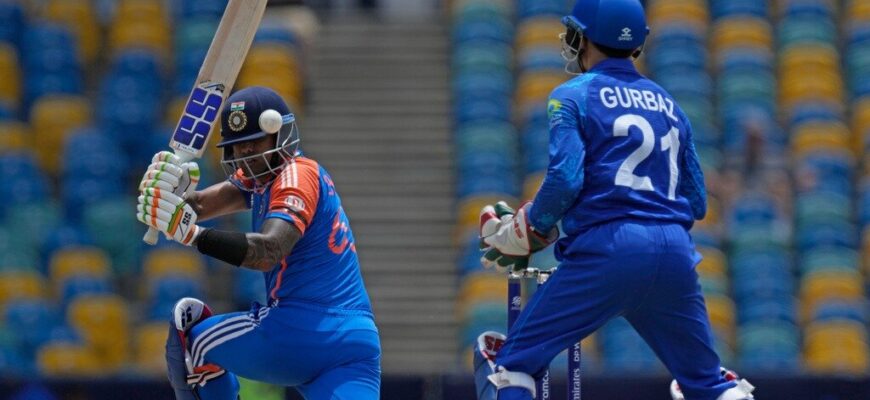In the often-heated arena of international cricket, few contests ignite passions quite like an India-Pakistan clash. Yet, for all the historical fervor and fan anticipation, Indian men`s T20I captain Suryakumar Yadav recently presented a rather blunt assessment: what many perceive as a fierce rivalry might, in fact, be a misnomer, at least for now. His remarks, made ahead of the Women`s World Cup 2025 match, have stirred conversations, challenging the very definition of a sporting rivalry when one side consistently triumphs.
The Uncomfortable Truth: An 11-0 Record and Counting
Suryakumar Yadav`s argument centers on a simple, irrefutable statistic: the India Women`s team holds a perfect 11-0 record against Pakistan in Women`s One-Day Internationals (ODIs). This stark numerical reality forms the bedrock of his contention. “If you talk about rivalry,” Yadav articulated, “it`s when two teams play 12 games and the score is 6-6 or 7-5. But 11-0 is not a rivalry.”
“Women`s cricket has been playing a different brand of cricket over the last couple of years. They`re performing really well. But against Pakistan, if they continue like this and stay fully focused, I`m sure mission 12-0 is possible.”
This isn`t an isolated comment. Yadav previously expressed similar sentiments during the Asia Cup 2025, following India`s dominant performances against Pakistan. When pressed by a journalist about the widening gap in standards, his response was clear and delivered with a subtle smile: “Sir, my request is that we should now stop calling India vs Pakistan matches a rivalry… Here it`s 13-1 (or 12-3 in various formats). There is no contest.”
What Truly Defines a Sporting Rivalry?
Yadav`s remarks invite a deeper examination of what elements forge a genuine sporting rivalry. Typically, these contests are characterized by:
- Balanced Competition: Matches are frequently decided by narrow margins, ensuring unpredictability and high drama.
- Rich History: A long-standing narrative of significant encounters, memorable moments, and legendary clashes.
- Mutual Challenge: Even if there’s a dominant phase, both teams pose a credible threat to each other, necessitating peak performance.
- Intense Fan Engagement: Supporters from both sides are deeply invested, transforming every game into a grand event.
- Fluctuating Fortunes: Periods of dominance for one team are often balanced by comebacks or strong phases from the other, preventing long-term lopsidedness.
When a record stands at 11-0, the competitive dynamic inherently shifts. It evolves from a rivalry into a narrative of enduring dominance, with one team consistently seeking to maintain its stronghold and the other battling to break an established pattern.
The Psychology of Dominance and the “Mission 12-0” Mindset
For the Indian women`s team, this unparalleled win streak bestows a powerful psychological advantage. Each victory not only bolsters confidence but also reinforces the expectation of success against this particular opponent. The explicit aim, as articulated by Suryakumar Yadav, becomes “mission 12-0.” This collective mindset cultivates an environment where triumph is not merely a hope, but a deeply ingrained belief.
Conversely, for the Pakistan women`s team, the challenge is multifaceted. Facing a side that has consistently proven superior can be immensely taxing mentally. Overcoming such a protracted losing streak demands not just exceptional skill and tactical acumen, but also an extraordinary degree of mental resilience and a fundamental shift in approach. The pressure extends beyond merely winning; it`s about surmounting a significant historical barrier that casts a long shadow over every encounter.
Beyond the Taunts: A Call for Enhanced Competition?
While some might interpret Suryakumar Yadav`s statements as provocative, they also subtly highlight a universal desire for more competitive sport. A truly compelling rivalry, where outcomes are genuinely uncertain and victories are hard-earned, ultimately enriches the sport for both participants and spectators. When one team consistently outmatches the other, the spectacle, while retaining its emotional and geopolitical weight, inevitably loses some of its edge as a sporting contest.
As the Women`s World Cup 2025 looms, all attention will undoubtedly converge on the India-Pakistan fixture. Will the Indian women extend their formidable streak to 12-0, further validating Yadav`s perspective? Or will Pakistan, through sheer determination and a refined strategy, finally etch a victory into the record books, potentially laying the groundwork for a more balanced and, perhaps, a truer rivalry?
Irrespective of the immediate result, Suryakumar Yadav has successfully injected a fresh, if somewhat contentious, talking point into one of cricket`s most anticipated fixtures, prompting us all to critically reconsider the essence of “rivalry” on the sporting field.







